Life
Sign up for our newsletter
We summarize the week's scientific breakthroughs every Thursday.
-
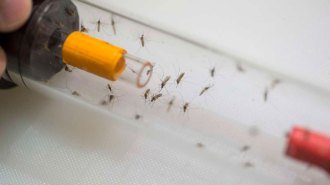 Animals
AnimalsMosquitoes prefer dozing over dining when they are sleep-deprived
Mosquitoes repeatedly shaken to prevent slumber lag behind well-rested ones when offered a researcher’s leg to feed on, new experiments show.
By Anna Gibbs -
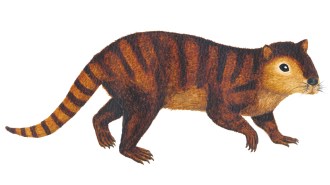 Paleontology
PaleontologyHow mammals took over the world
In the book The Rise and Reign of the Mammals, paleontologist Steve Brusatte tracks the evolutionary innovations that made mammals so successful.
-
 Ecosystems
EcosystemsJust 3 ingredients can quickly destroy widely used PFAS ‘forever chemicals’
Ultraviolet light, sulfite and iodide break down enduring PFAS molecules faster and more thoroughly than other UV-based methods.
By Nikk Ogasa -
 Genetics
GeneticsWho decides whether to use gene drives against malaria-carrying mosquitoes?
As CRISPR-based gene drives to eliminate malaria-carrying mosquitoes pass new tests, the African public will weigh in on whether to unleash them.
-
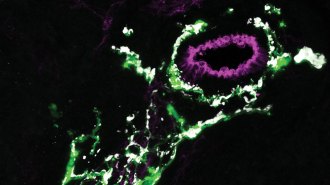 Neuroscience
NeuroscienceGlial cells may take on big jobs in unexpected parts of the body
Scientists are finding mysterious glia in the heart, spleen and lungs and wonder what they’re doing there.
-
 Health & Medicine
Health & MedicineTrained dogs sniff out COVID-19 as well as lab tests do
Dogs can be trained to sniff out COVID-19 cases. They’re overall as reliable as PCR tests and even better at IDing asymptomatic cases, a study suggests.
-
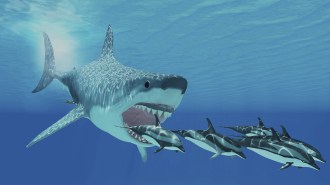 Paleontology
PaleontologyGreat white sharks may have helped drive megalodons to extinction
Analyzing zinc levels in shark teeth hints that megalodons and great whites competed with each other for food.
-
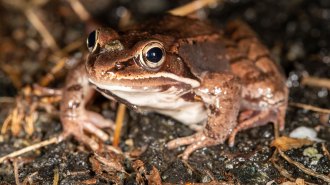 Animals
AnimalsAn ‘acoustic camera’ shows joining the right boy band boosts a frog’s sex appeal
Serenading with like voices may help male wood frogs woo females into their pools, analysis of individual voices in a frog choir shows.
By Susan Milius -
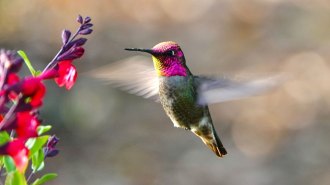 Life
LifeHigh altitudes may be a climate refuge for some birds, but not these hummingbirds
After being moved to a spot high above their typical home, Anna’s hummingbirds seemed to struggle to hover in the thin air.
-
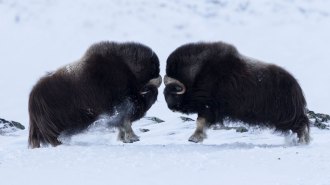 Neuroscience
NeuroscienceHeadbutts hurt the brain, even for a musk ox
Though musk oxen are built to bash, a study of the headbutters turned up signs of brain damage. But that may not be catastrophic for the bovids.
-
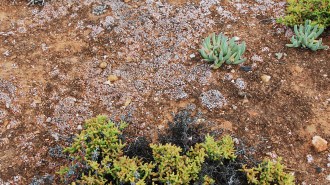 Ecosystems
EcosystemsBiocrusts reduce global dust emissions by 60 percent
Lichens and other microbes construct biological soil crusts that concentrate nutrients and slash global dust emissions.
By Nikk Ogasa -
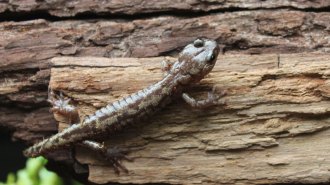 Animals
Animals‘Wandering’ salamanders glide like skydivers from the world’s tallest trees
Using their legs and tail, these amphibians have impressive control over their daring dives from coast redwood canopies.
By Jake Buehler